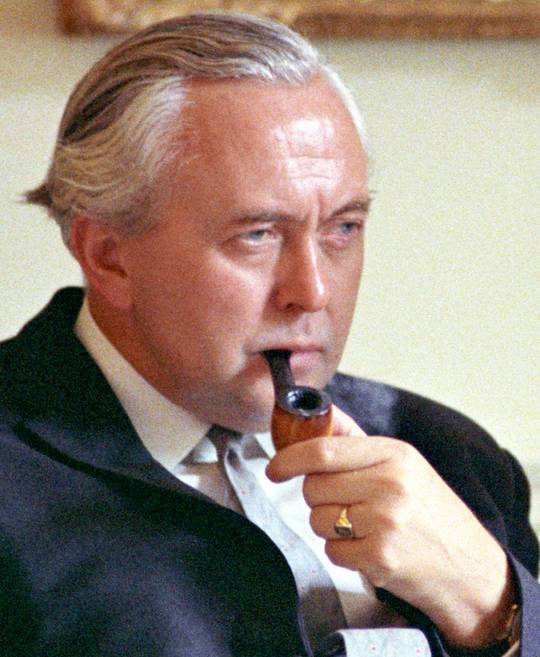Wilson (1916-95) played up his working-class origin, but as the son of an industrial chemist he was not truly plebeian. His first-class degree in philosophy, politics and economics from Jesus College, Oxford, with Alphas on every question, followed by a research fellowship at University College, marked him as an intellect in the Peel class, though his colleague Roy Jenkins (1920-2003), who also got a First in PPE, claimed he lacked originality.
After wartime work on economic planning with William Beveridge (1879-1963), Wilson entered Parliament in 1945 and two years later became President of the Board of Trade, aged 31. Then in 1951, he resigned over Gaitskell’s introduction of prescription charges on spectacles, thus cementing his place as deputy to Aneurin Bevan on the left of the party. Thirteen years of opposition followed, but after Bevan and Gaitskell died in quick succession, Wilson was the natural next leader of the party. An excellent Leader of the Opposition, he succeeded in winning the 1964 election.
Facing a balance of payments crisis immediately upon election, Wilson took out a large loan to bolster the pound, then repeated this operation in 1966 after winning a large electoral majority. Since the pound was very overvalued (British inflation, thanks to Macmillan, being persistently higher than elsewhere) this resulted in years of stagnation, worsened by the Wilson government’s persistent overspending. Then in November 1967 devaluation became inevitable, accompanied by a typically slippery speech by Wilson and followed by two years of harsh austerity by Jenkins, his new Chancellor, including a top income tax rate one year of 135%. By June 1970 the economy was recovering, but Wilson’s reputation as an economic wizard was in tatters.
Other achievements of the Wilson government were a 1965 National Plan that within a year became pure fiction, a series of progressive social reforms that brought the 1960s to everybody, the rapid expansion of comprehensive education with the destruction of the grammar schools, a precipitate withdrawal from Britain’s last bases east of Suez and a second failed application to join the EEC. The period also brought the outbreak of the “Troubles” in Northern Ireland, which were to last for the next 30 years. Finally, in 1969 Wilson attempted a long-overdue trades union reform but caved in against opposition from the unions and much of his Cabinet. Wilson was nonetheless expected to win the 1970 election but lost it.
In opposition, Wilson reversed his previous support for EEC membership, and moved left on economic policy, winning two narrow majorities in 1974 on the back of a supposed agreement with the unions. This agreement proved nugatory, and Wilson’s second term saw the stock market hit a lower level in real terms than in 1940, then 1975’s inflation rise to 24.2%. It also saw a referendum confirming Britain’s membership of the EEC, after an especially deceptive campaign. When Wilson resigned in April 1976, he was not much mourned, even by the left.
Wilson was a slippery short-term political operator but had a solid core of beliefs. Given his economic education, his governments’ economic track record was however extraordinarily bad. While he did less damage than appeared at the time, he deserves to rank in the depths of this list.
